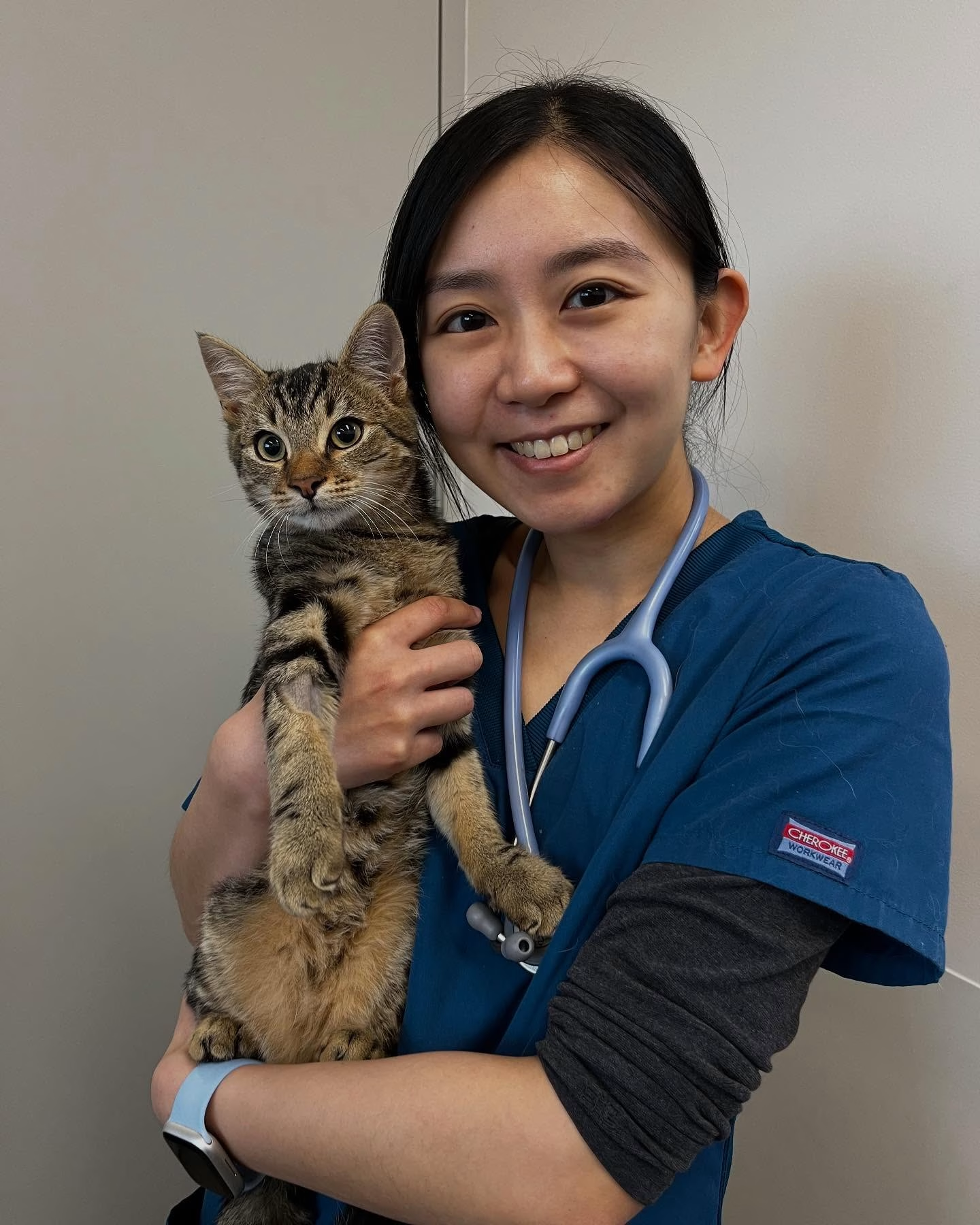Cat & Kitten Vaccinations
Ensuring your cat or kitten is properly vaccinated is essential for their long-term health.
At Vets on Parker in Melbourne, we provide comprehensive vaccination programs to safeguard your adult cat or kitten from serious and potentially life-threatening diseases.
Why Is It Important To Vaccinate Your Cat?
Kittens and adult cats are vulnerable to various infectious diseases, many of which are highly contagious. Even indoor cats can be exposed to harmful viruses through brief interactions with other animals or contaminated surfaces. Core viruses can lead to long-term health issues and may be fatal, particularly for unvaccinated cats, kittens, or those with compromised immune systems.
Vaccinating your feline friend is essential for safeguarding their health and reducing the spread of these illnesses. Additionally, all boarding facilities require up-to-date vaccinations for admission.
What We Vaccinate Against
At Vets on Parker, we provide core cat vaccinations against the following serious feline diseases:

- Feline Panleukopenia Virus — a life-threatening and potentially fatal virus that disrupts blood cell production in the bone marrow and damages the intestines, causing vomiting, diarrhoea, and reduced nutrient absorption.
- Feline Herpes Virus — an infection that affects the upper respiratory tract and eyes, producing chronic flu-like symptoms that can persist or re-emerge during periods of stress.
- Feline Calicivirus — a highly contagious virus that affects the upper airways and eyes, causing ulceration of the tongue, mouth, and respiratory tract, along with painful eye swelling and high fevers. All strains can be life-threatening for kittens, while more virulent strains pose significant risks to adult cats as well.
Additional Vaccination for Outdoor Cats:
For outdoor cats, vaccination against Feline Immunodeficiency Virus (FIV) is recommended. FIV can weaken your cat’s immune system, resulting in chronic health issues like flu symptoms, dental disease, and poor coat condition. FIV-positive cats often have shorter life spans due to increased disease susceptibility. The virus is primarily transmitted through bites from infected cats.
Cat Vaccination Schedule
Following the proper vaccination schedule is essential for building your cat or kitten’s immunity through our comprehensive vaccination program:
Initial Vaccination Schedule for Kittens:
First vaccination
6–8 weeks old
Second vaccination
10–12 weeks old
Third vaccinations
14-16 weeks old
Annual Booster:
Once your cat completes the initial series, they will need annual vaccinations to maintain immunity.
FIV Vaccination Schedule:
For FIV, your cat will need three boosters spaced two weeks apart. Ideally, your cat should complete the course before being allowed outdoors. Since the vaccine is not 100% effective, testing may be recommended if your cat has been involved in a fight. Cats that test positive for FIV should not roam freely outdoors to prevent the spread of the virus to other cats.
Please note that Manningham Council now has a 24-hour cat curfew, requiring all cats to be confined within your property boundary at all times.
Book an Appointment
At Vets on Parker, we make it easy to keep cat vaccinations up to date. Whether it’s your kitten’s first round of vaccinations or a routine annual booster for your cat, our team is here to ensure your furry family member stays protected.
Book your cat’s vaccination appointment today and give them the best start for a long and healthy life!
A Templestowe Vet Clinic with a difference
What to expect at our clinic
Warm welcomes, friendly advice, caring pet centered service and follow-up care – We’re here for you and your pet each step of the way.
Collaboration is at the core of every interaction and service, ensuring your pet gets the best care plan possible. And our experience and knowledge? That’s yours to tap into. Making sure you leave confident and informed about your pet’s care.
What our Vets on Parker pet owners really think
EXCELLENTTrustindex verifies that the original source of the review is Google. Good vets. Kind staff. Caring always.Posted onTrustindex verifies that the original source of the review is Google. our 15yo dog has had problems with prostate, for a few years, it was refreshing to finally get a solution to his problem, without an invasive procedurePosted onTrustindex verifies that the original source of the review is Google. Great all round experiencePosted onTrustindex verifies that the original source of the review is Google. Jessie has been visiting the team at VOP since she was 8 weeks old, she is now nearly a 15 yo Labrador. Dr. Kevin and the whole team at reception, other vets and nurses have treated her like a family member. VOP have looked after Jessie during emergency visits and routine appointments and have always been accommodating and patient. Jessie will soon be relocating to another city and unfortunately will not be able to see the team at VOP. Thank you to everyone for looking after her.Posted onTrustindex verifies that the original source of the review is Google. Just wanna appreciate your good and professional services for my cat meow meow even we couldn't have her for a bit more longer.. I have no regret that I brought her to here since she was younger , she had some happy time with all of us .Posted onTrustindex verifies that the original source of the review is Google. Vets on Parker are a wonderful clinic, with even more wonderful staff. A special shout out to Dr. Erica and Dr. Kassy. The whole Vet Nurse Team are kind, caring and knowledgeable. The clinic has offered exceptional support to both of my pet dogs, especially my very senior dog who has since passed. I am so grateful for their innovation and care that they provided during such a difficult time.Posted onTrustindex verifies that the original source of the review is Google. Excellent clinic so kind and caringPosted onTrustindex verifies that the original source of the review is Google. I've been taking my precious dog to this clinic for 16 years and have always left happy and satisfied.
Need an appointment?
Where your pet’s unwell, or it’s time for a general check-up or vaccination, your furry friend is in good hands. Book online to see our expert Vets on Parker!
Contact Details
Opening Hours
Monday – Friday: 8am – 7pm
Saturday: 8am – 4pm
Sunday: 10:00 am – 12:00pm
Let’s talk pets
FAQs
Can I vaccinate my cat if it’s not feeling well?
How do I vaccinate a cat that is overdue for vaccinations?
How soon can my kitten go outside after having their vaccinations?
Kittens can typically go outside seven to ten days after their final vaccinations, provided they have received all initial doses and passed a health check. However, Vets on Parker recommends that cats remain indoors or be confined to an appropriate cat enclosure. This helps prevent injuries from being hit by cars, getting into fights with other cats, and hunting local wildlife.
Please note that Manningham Council now has a 24-hour cat curfew, requiring all cats to be confined within your property boundary at all times.

